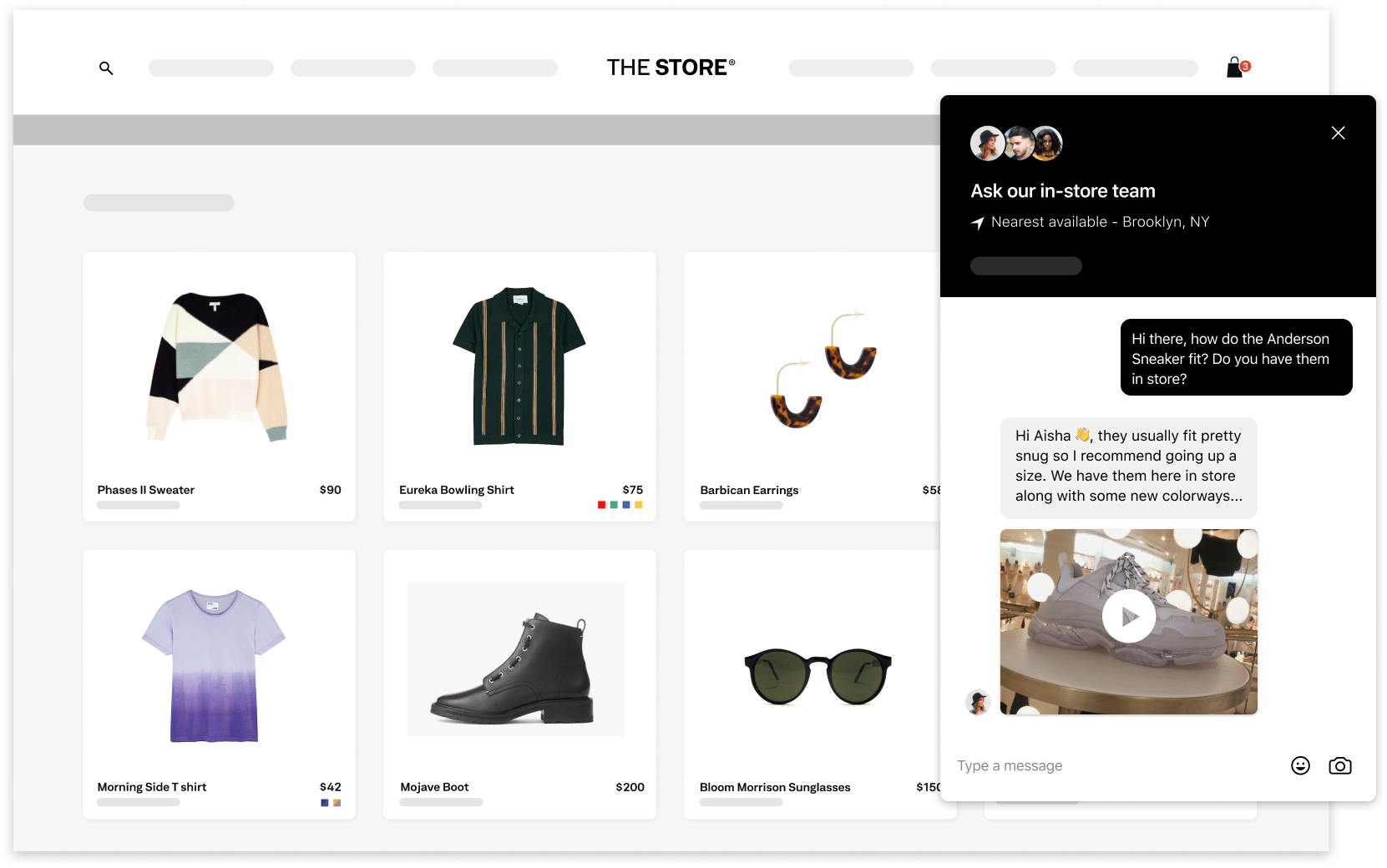

Client story: Hero
source link: https://blog.tildeloop.com/posts/client-story-hero
Go to the source link to view the article. You can view the picture content, updated content and better typesetting reading experience. If the link is broken, please click the button below to view the snapshot at that time.

Client story: Hero
Founded in 2015, Hero is on a journey to change the way we shop, personalizing it by connecting customers with retailers. They have completed a $10m Series A funding round to accelerate this reinvention of retail.

Hero enables customers to learn more about the items they’re interested in without leaving their home, office, bus, or wherever they are. Stores all over the world are empowered by Hero’s technology that unlocks their unique advantage over the e-commerce giants.
Hero connects to the retailer’s website (or Shopify store) using their web plug-in and allows customers to chat with the retailers directly, be it via text, voice or video, and by doing so allows them to convert a potential customer to an actual customer.
Our collaboration
Tilde Loop was chosen to assist Hero in expanding and designing their software architecture, as well as expanding their reach and functionality. Our developers were embedded members of Hero’s development team, collaborating to solve problems.
Hero’s platform is built for real-time chat, analytics and sales. It can be used by 1000’s of mobile and web applications at the same time. It’s important to have the ability to easily scale individual components and add new features based on fast-changing business requirements.
Tilde Loop worked with Hero’s development team to identify opportunities to improve processes and practices. The development team at Hero is divided into cross-functional teams. One of the goals was to enable each team to take ownership of one part of the platform and assist them in retaining the confidence in the codebase to publish new changes to production as often as possible. The solution was to migrate from a monolithic architecture to microservices and define CI/CD pipelines and testing strategies.
We worked closely with Hero’s engineers to design and build microservices using TypeScript, Node.js and Koa framework. Moreover, we implemented a template that was later used for the development of new services to speed up the development process and simplify the onboarding of new developers.
Together with Hero’s engineers, we decided to use Jest for writing unit tests so that every new feature meets its design and behaves as intended. Unit tests and code reviews enabled development teams to maintain the highest level of coding practices while maximizing the readability and maintainability of the code without compromising quality.
Hero is offering different authentication strategies for users to log in using email and/or phone. Tilde Loop helped with the implementation of those strategies and defined authorization rules across the whole platform to increase the protection of the user’s private data. We were working with the development teams to implement REST API-s, document and monitor them so that every unexpected behavior can be easily spotted, reproduced and fixed.

To reach even more retailers Hero set their sights on Shopify, an e-commerce platform, but first, they needed to create an app that would connect their platform with Shopify’s retailers.
To achieve this we choose React, a frontend JavaScript library that uses components to show User Interfaces, and Polaris, Shopify’s React component library, to keep the UI sleek, simple, and in touch with Shopify’s overall app layout. Using carefully crafted code, made with readability and scaling in mind, as well as a UX that is friendly and simple, Hero is available to Shopify Retailers and allows the users to easily reach Hero’s dashboard, get in contact with them, as well as adjust Hero’s plugin on Shopify.
And as the business is growing, so do the requirements for functionality, so, together with Hero’s engineers, Tilde Loop implemented solutions for their clients to dynamically personalize their responses to potential customers across multiple languages. Be it premade responses that the retailer can upload to Hero’s servers directly to easily and quickly reply to the customer, or naming customization to stand out from the crowd, anything can be possible with the right UI and cutting edge technology.
All of these solutions have been crafted with readability, scalability and maintainability in mind, as well as documentation for ease-of-understanding by whoever needs to check the code.
As time moves forward and new technologies arise, we will use the knowledge shared by Hero to continue delivering quality code with future clients, as we are sure Hero will flourish by using the knowledge Tilde Loop shared with Hero’s engineers, and that they will continue to change the e-commerce industry for the better.
Recommend
About Joyk
Aggregate valuable and interesting links.
Joyk means Joy of geeK